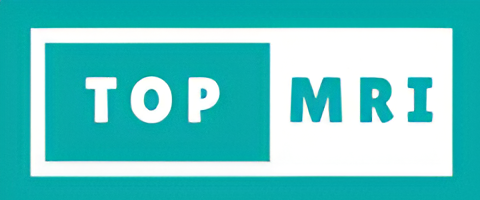
- Home
- Services
- Locations
- MRI Scan
- Greater London Area
- London – Marylebone, W1G 7HE – 3.0 T MRI Scan – £300
- London – Harley Street, W1U 2HX – Open MRI Scan – £500
- Middlesex – Enfield, EN2 8JL – 1.5 T MRI Scan – £300
- West Middlesex – Isleworth, TW7 6AF – 1.5 T MRI Scan – £300
- Surrey – Epsom, KT18 7LX – 1.5 T MRI Scan – £300
- Surrey – Ashford, TW13 3AA – 1.5 T MRI Scan – £300
- Surrey – Guildford, GU2 7XU – 3.0 T MRI Scan – £300
- Kent – Sidcup, Bexley, DA14 6LT – 1.5 T MRI Scan – £300
- North West England
- Manchester – M80 4AN – Open MRI Scan – £500
- Greater Manchester – Manchester, SK8 7NB – 1.5 T MRI Scan – £279
- Greater Manchester – Whythenshaw, M23 9LT – 3.0 T MRI Scan – £300
- Greater Manchester – Stockport, SK2 7JE – 1.5 T MRI Scan – £300
- Cumbria – Cockermouth, CA13 9HT – 1.5 T MRI Scan – £279
- Cumbria – Penrith, CA11 0AH – 1.5 T MRI Scan – £279
- Lancashire – Preston, PR4 0AP – 1.5 T MRI Scan – £279
- Lancashire – Fylde, FY8 1PF – 1.5 T MRI – £300
- North East England
- East Midlands
- East of England
- West Midlands
- South West England
- South East England
- Wales
- Yorkshire and the Humber
- Greater London Area
- CT Scan
- Full Body MRI Scan
- Ultrasound
- MRI Scan
- Patients
- Referrers
- Prices
- 0333 344 1811
[email protected]
Stomach Cancer
- Uncategorized
-
Sep 24
- Share post
Stomach Cancer: Symptoms, Causes, Diagnosis, Treatment, and Future Outlook.
Disclaimer:
This blog is for informational purposes only and should not be taken as medical advice. Content is sourced from third parties, and we do not guarantee accuracy or accept any liability for its use. Always consult a qualified healthcare professional for medical guidance.
What is Stomach Cancer?
Stomach cancer, or gastric cancer, originates in the stomach lining, primarily as adenocarcinoma (95%), from glandular cells. Types include intestinal (linked to H. pylori) and diffuse (signet-ring cell, aggressive). In 2025, ~26,500 US cases annually, median age 68, more in men/Asian/Hispanic populations, with decreasing incidence due to H. pylori eradication.
Symptoms
Early asymptomatic; advanced include indigestion, abdominal pain, nausea, vomiting (blood possible), early satiety, weight loss, fatigue, anemia (bleeding), and dysphagia (cardia tumors). Advanced cause ascites, jaundice, or palpable masses. Symptoms mimic ulcers.
Causes
H. pylori infection is primary (70%), causing chronic gastritis. Risk factors include salted/smoked foods, low fruits/vegetables, smoking, alcohol, family history, and syndromes (Lynch, FAP). Genetic mutations (CDH1 in hereditary diffuse). In 2025, microbiome and Epstein-Barr virus (9%) are key.
Diagnosis
Diagnosis uses endoscopy with biopsy, EUS for depth, CT/MRI/PET for staging, and laparoscopy for peritoneal spread. Blood tests (CEA, CA19-9) monitor. In 2025, AI endoscopy detects 90% early lesions.
Treatment
Early-stage uses endoscopic resection or gastrectomy with lymph node dissection. Advanced involves perioperative chemotherapy (FLOT), targeted (trastuzumab for HER2+), immunotherapy (nivolumab for PD-L1+), and radiation. In 2025, light therapy and ADCs improve responses.
Future Outlook
In 2025, 5-year survival is 32% overall, 70% localized. Advances extend advanced to 12-18 months. By 2030, vaccines and AI could achieve 50% survival.
Sources
The information for stomach cancer is sourced from Mayo Clinic’s “Stomach cancer – Symptoms and causes” for symptoms; Cleveland Clinic’s “Stomach Cancer (Gastric Cancer): Symptoms, Treatment & Outlook” for treatment; NCI’s “Gastric Cancer Treatment” for diagnosis; Healthline’s “Stomach Cancer: Symptoms, Causes, Diagnosis, and Treatment” for overview; and PMC’s “Advances in Gastric Cancer Therapy” for future outlook.